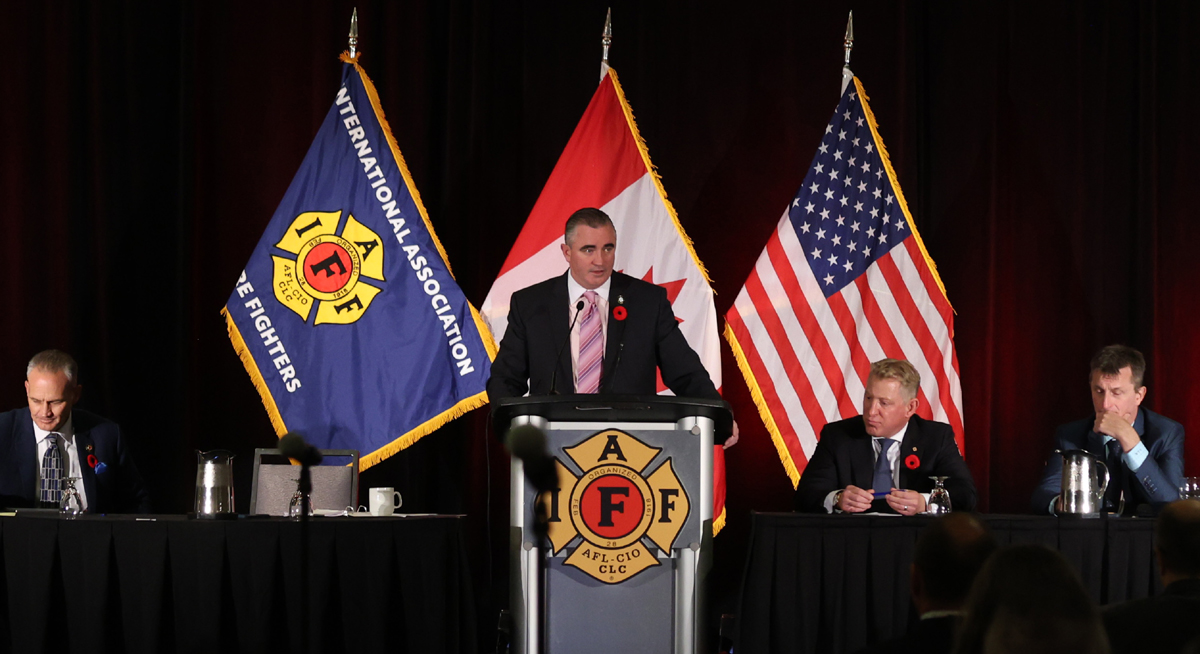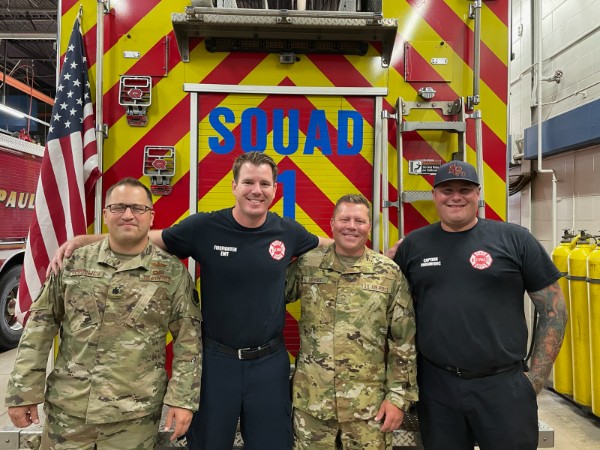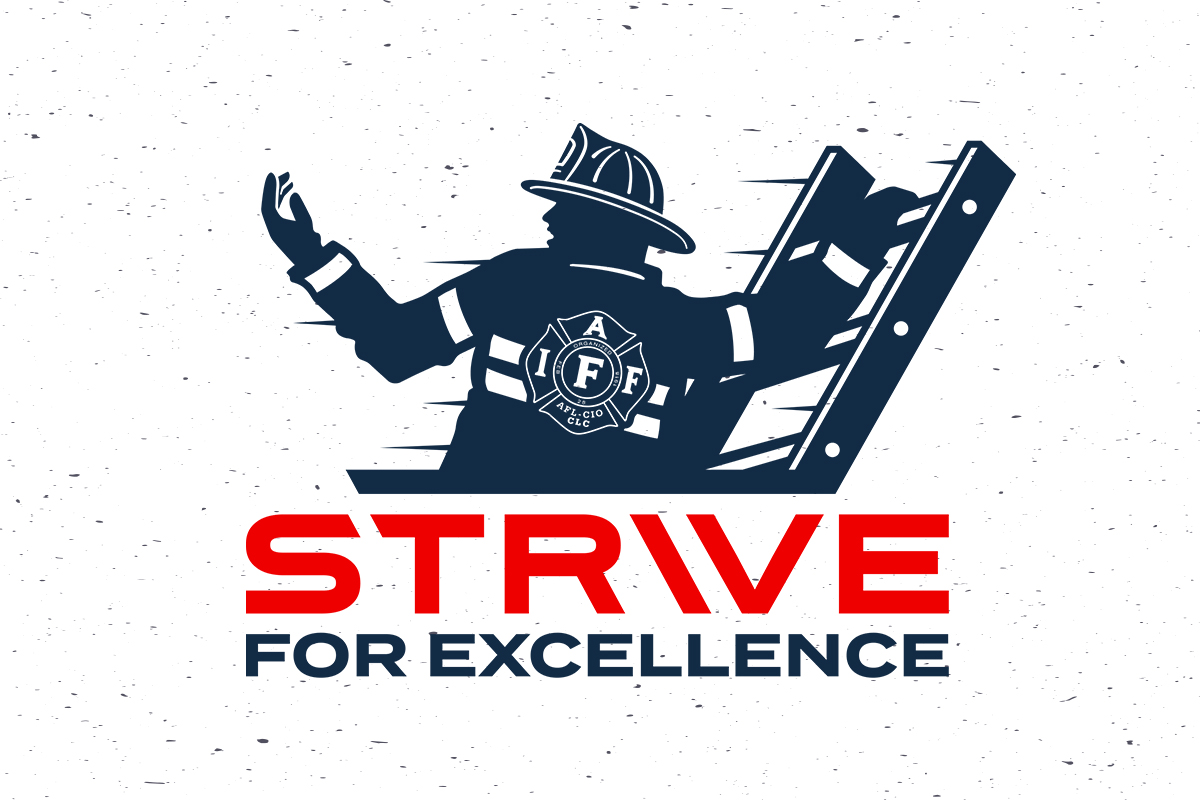With the severity of wildfires, floods and other disasters increasing, the IAFF is prepared to use its expertise and resources to help elevate emergency preparedness and response across Canada.
In a July 31 submission to the Canadian Government, the IAFF proposed serving as the lead facilitator of an Enhanced Emergency Management Program (EEMP) – a collaborative partnership designed to equip fire fighters and other emergency responders with the training and tools required to strengthen preparedness and response capabilities across all hazards, including fires, tornadoes, earthquakes, floods, ice storms, aviation and rail disasters, and high-wind events.
In addition, the IAFF proposed $2.5 million in government funding for the initiative, scalable to meet current and future needs.
The submission, made as part of the government’s annual Pre-Budget Consultation exercise, also recommended extending the IAFF’s Responding to the Interface (RTI) and HazMat training programs, which have been delivered in Canada since 2023 and 2009, respectively, with Government of Canada funding. This included a proposal of an additional $1 million for each program in recognition of their critical roles in bolstering emergency preparedness.
“A proactive, structured approach is needed to enhance community resilience and to timely address capacity gaps amid these growing threats,” the IAFF stated in the submission, citing recent disasters across Canada and a gap between federal emergency management policy and current prevention, training and response capabilities.
Led by globally recognized subject matter experts and aligned with applicable national regulations and standards, the IAFF-led EEMP would design and deliver education modules, develop a cadre of instructors and conduct a pilot delivery – paving the way fora full national rollout in both English and French.
The EEMP would include full-scale disaster scenario exercises, stockpiles of disaster relief resources with available means of transport, large-scale regional command modules, power generation and water purification capabilities and rehousing resources for displaced civilians. It would also establish regional Disaster Response Task Force teams.
“Addressing the real and growing risks faced by communities across our nation required bold action, steadfast resolve and the pragmatism essential to effective governance,” the IAFF submission stated. “Whether the threat is wildland or interface fires, flooding, windstorms, hazardous materials incidents or other disasters that endanger lives and property, IAFF programs are designed to meet these challenges.”
Launched in 2009, the IAFF Canadian HazMat & CBRNE Training Initiative has successfully trained more than 10,000 emergency responders and other key personnel to a recognized level of response, using IAFF instructors and a curriculum that is NFPA-compliant and Pro Board accredited. The training is offered free to municipalities, with a current federal funding contribution of up to $500,000 annually.
We’re proud of the important work our union has done in Canada with our HazMat and RTI programs, and we’re ready to help bring that to a new level through an Enhanced Emergency Management Program that uses IAFF programs, people and expertise as its centrepiece.
general president edward kelly
In 2023, against the backdrop of a record wildfire season, the Canadian Government announced $400,000 in funding for IAFF RTI training , which was later increased by $1.8 million to support program delivery through March 2027. Close to 1,000 IAFF members have received RTI training to date, including train-the-trainer courses that will significantly increase the number of fire fighters equipped to safely and effectively protect structures in wildland-urban interface areas.
“We’re proud of the important work our union has done in Canada with our HazMat and RTI programs, and we’re ready to help bring that to a new level through an Enhanced Emergency Management Program that uses IAFF programs, people and expertise as its centrepiece,” said General President Edward Kelly. “The IAFF is well-positioned to work collaboratively with the government to keep all Canadians safe in the face of these ever-growing threats.”



